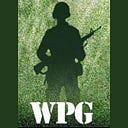My Daniel Ellsberg Moment
by Doug Bradley
(NOTE: I never met the brave man; nor did I do anything nearly as gutsy. But Daniel Ellsberg’s release of The Pentagon Papers inspired me to take a step, albeit a mini-one, in Vietnam in the summer of 1971.)
Try as they might, the military brass had a hard time keeping the stateside news from us GIs in Vietnam. That was especially the case in the summer of 1971 for guys like me who served as information specialists, a.k.a. combat correspondents, in a corporate-esque, bright and shiny Command Information Office (IO) in the U.S. Army’s headquarters at Long Binh. Across the hall from us and our typewriters sat the AP, UPI, and Reuters newswire teletype machines, meaning we were aware of what was happening back in the U.S. of A. whether the Army wanted us to know or not.
So, when the Pentagon Papers were leaked to the press and released in June 1971, we knew about it. But what could we do about it? At that point in the never-ending war, we were sending troops home and not replacing them, turning the ground war over to our South Vietnamese allies. In effect, we were leaving, without winning, hence the mantra among us at that time — “nobody wants to be the last GI killed in Vietnam.”
And we Army reporters sure as hell knew that what we were writing and reporting to our troops wasn’t the truth. Lies were piled among lies, the list as high as the body counts at My Lai. Many of us were aspiring “real” journalists, reporters like David Halberstam, Peter Arnett, and Neil Sheehan as our idols. We wanted to do something, expose something or somebody but, hell, we were waist deep in the place Ellsberg and others had written about in the Papers, so our options were slim and none.
Like others who held the Specialist 4 rank, I had an opportunity to attain Specialist 5 status. The best part of that, besides a minor pay boost, was the additional hold baggage allowance you’d receive. Meaning you could send lots of cool stuff back to the U. S. free! My wish list included a full set of Mikasa dinnerware for my mom and a first-rate sound system for myself. How could I be so oblivious to the fact that some of my fellow GIs were fighting and dying, hundreds of Vietnamese were being wasted every day, and all I cared about was the booty I could send home?
The major barrier to attaining Spec. 5 rank involved hurdling a rigorous cross-examination by a bureaucratic, three-person Army panel. My three inquisitors included two “lifers” (career soldiers) — a lean and mean African American Master Sergeant and an officious Southern white Sergeant Major — plus an officer, in my case a blond Major from the Judge Advocate Generals (JAG) ranks who reminded me of Alan Ladd in “Shane,” my all-time favorite Western.
The typical Spec. 5 “exam” questions came fast and furious — “What Field Manual covers guard duty? What are two types of guard duty? What type of guard is normally used to protect a unit in a tactical environment?” — etc. etc. I figured there were a lot of guard duty questions since it was the main, if not only, kind of soldiering guys like me performed. I was armed and ready for those. And nailed every one.
But then the Master Sergeant leaned over the dais to look straight at me: “Spec. 4 Bradley, you’re an information specialist. You’re in Army Command Information here at Headquarters. You write for official Army publications. You have a Secret security clearance. I’d like to know if you approve of the release of the Pentagon Papers?”
I lost my breath. Did this career soldier just ask me about The Pentagon Papers? In Vietnam of all places? How do I navigate a question like that?
“Spec. 4 Bradley,” his Sergeant Major colleague piped up, “will you answer the last question please?”
My mind was spinning, visions of headlines and bylines and body counts dancing in my head.
“The Pentagon Papers soldier,” he repeated angrily, “do you support their publication?”
In that moment, I forgot about Mikasa dinnerware and Sansui sound systems. I thought about being a reporter. I thought about truth and lies. I thought about Daniel Ellsberg who at that point was facing the possibility of a 115-year prison term.
“Sergeants, yes. I believe the release of the documents, as supported by the U. S. Supreme Court, was the right thing to do. As a journalist, I believe in freedom of the press.”
The room grew quiet. Both lifers appeared to be suffering from indigestion. I could kiss my extra hold baggage goodbye.
“Do you mean to say,” the Sgt. Major recovered, “that the press can willfully and knowingly publish…”
“Spec. 4 Bradley has answered the question,” the blond JAG officer jumped in. “In fact, he’s answered all our questions.” I guess his rank and status certified him as chair of the three-headed hydra.
“Spec. 4 Bradley you’re dismissed.”
Thanks to the JAG Major I made Spec. 5. My more than five-decades old sound system still provides crystal clear audio entertainment. My mother loved her fancy dinnerware, which since her passing, is now at my dinner table. And Daniel Ellsberg is no more. But his Vietnam defining moment helped me to have one of my own.
RIP First Lieutenant Ellsberg.
About the Author: Vietnam veteran Doug Bradley is the author of Who’ll Stop the Rain: Respect, Remembrance, and Reconciliation in Post-Vietnam America, co-author with Craig Werner of We Gotta Get Out of This Place: The Soundtrack of the Vietnam War which was named best music book of 2015 by Rolling Stone magazine, and DEROS Vietnam: Dispatches from the Air-Conditioned Jungle now available as an audiobook.
